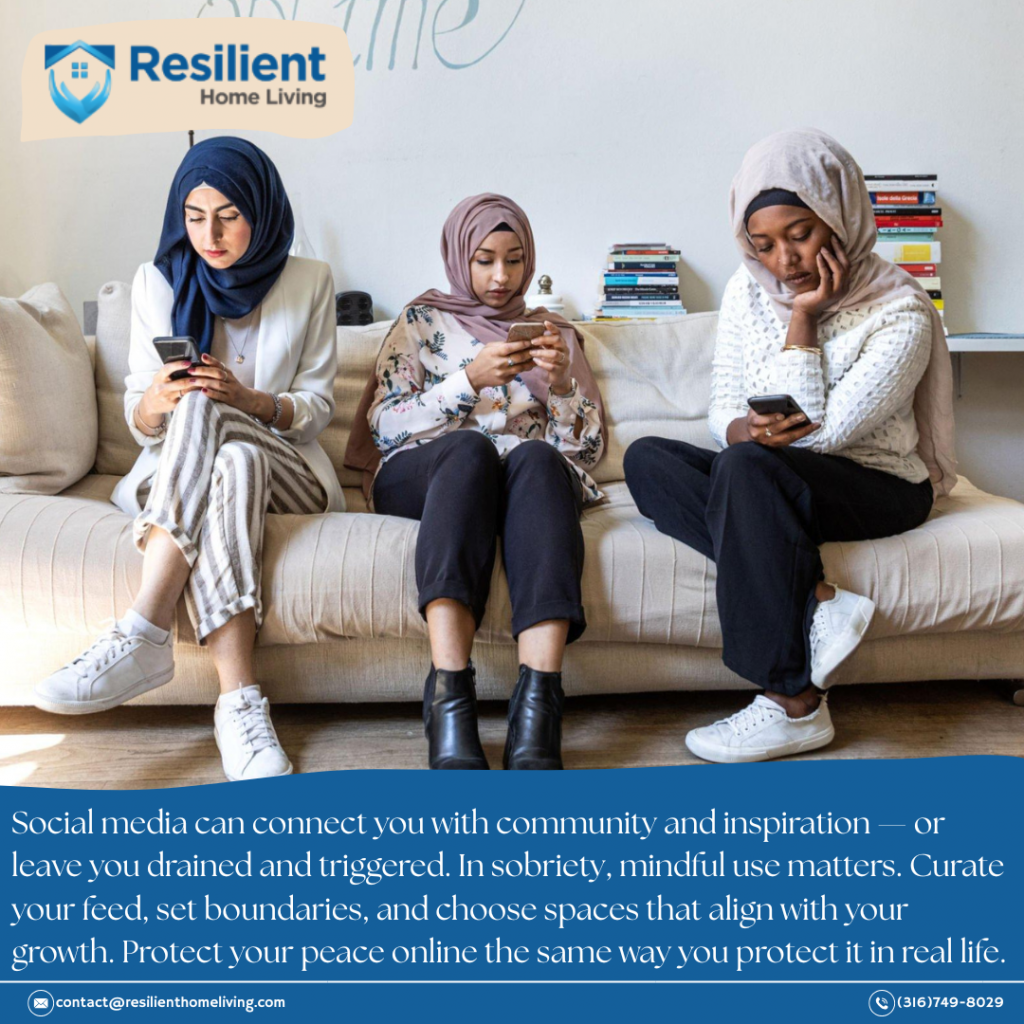Introduction
Social media is everywhere — it’s how we connect, share, learn, and sometimes even escape. For many people in sobriety, it can be both a lifeline and a landmine. On one hand, it offers community, inspiration, and endless resources to support recovery. On the other hand, it can trigger comparison, glamorize drinking culture, and drain your mental health if left unchecked.
Like sobriety itself, the key is awareness and intention. Understanding how social media affects your recovery allows you to use it as a tool rather than letting it become a trigger.
🌱 The Positive Side of Social Media in Sobriety
1. Connection With Recovery Communities
Platforms like Instagram, TikTok, Facebook, and X (Twitter) are home to vibrant sober communities. From motivational pages to hashtags like #SoberLiving or #RecoveryPositivity, you can instantly find people who understand your journey. This sense of community reduces isolation, especially in the early days of sobriety.
2. Access to Resources
Social media is a hub for recovery tools: podcasts, online meetings, meditation sessions, workout challenges, or nutrition advice. Having those resources at your fingertips can strengthen your recovery plan.
3. Sharing Your Story
Posting about your journey can be empowering. Whether you share milestones publicly or privately journal online, putting your story into words builds confidence, accountability, and even inspires others.
4. Motivation and Daily Affirmations
Your feed can become a source of daily encouragement if you intentionally follow accounts that post affirmations, quotes, or recovery insights. These reminders keep your mindset strong.
⚠️ The Challenges of Social Media in Sobriety
1. Triggers From Alcohol-Centered Content
Bars, parties, “wine o’clock” memes — alcohol and substance use are normalized (and glamorized) online. Scrolling past these posts can trigger cravings or feelings of missing out.
2. Comparison Trap
It’s easy to compare your recovery progress to someone else’s highlight reel. Maybe you see someone celebrating 5 years sober while you’re struggling with 5 months. Remember: everyone’s journey is different, and comparison often leads to discouragement.
3. Information Overload
Not all recovery advice on social media is accurate. Too much conflicting information can create confusion and overwhelm.
4. Screen Time and Mental Health
Excessive scrolling can increase anxiety, loneliness, or stress. In sobriety, emotional regulation is vital, and spending too much time online can work against your healing.
🌟 How to Use Social Media Mindfully in Sobriety
1. Curate Your Feed
Unfollow or mute accounts that promote drinking culture or make you feel inadequate. Instead, follow recovery accounts, wellness creators, or pages that align with your values.
2. Set Boundaries
Decide how much time you’ll spend online daily. Consider using app timers or taking regular digital detoxes.
3. Use Social Media With Intention
Before logging on, ask yourself: Why am I opening this app right now? If it’s boredom or avoidance, consider an offline activity that supports your recovery instead.
4. Engage Authentically
Don’t just scroll — interact. Comment on recovery posts, join sober Facebook groups, or connect with peers. Meaningful engagement makes social media supportive rather than isolating.
5. Know When to Step Back
If you notice your mood dipping after scrolling, it may be time to unplug. Sobriety thrives in environments that nurture positivity, and sometimes that means stepping away from the digital world.
🌱 Final Thoughts
Social media isn’t inherently good or bad. Like sobriety itself, it’s about balance, boundaries, and awareness. It can be an incredible tool for connection, inspiration, and education — as long as you use it mindfully.
Sobriety is about building a life that feels authentic, grounded, and fulfilling. Ask yourself: Does my social media use support that life, or distract from it? The answer to that question is your guide.

